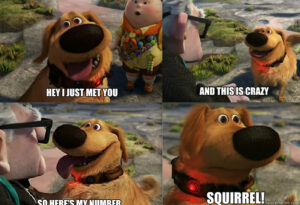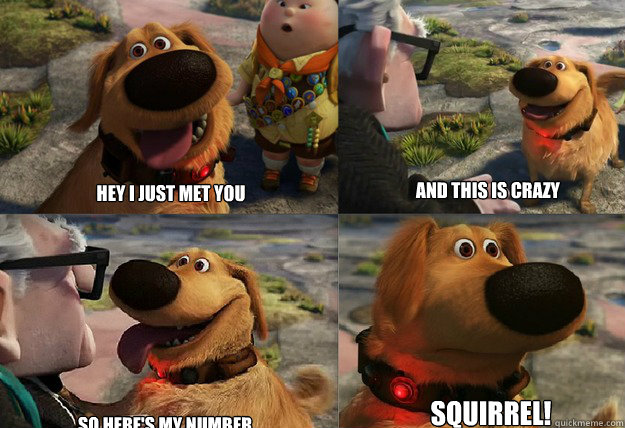Dog Trainer in Shawnee, KS shares his thoughts on a session I had today Part 2
General, distractions, dog training, keep it simple stupid dog training, kiss dog training, mike deathe, PROBLEM BEHAVIOR
 Ok so I have to get both you and my clients to understand what a “Living Room Dog” is… ( See part 1 of this series 7/19/12) Now the next step in fixing the issues with our little girl is to learn about distraction and how it is going to impact our training and help explain why this and other dogs act the way they do! Like I said in the last post there are going to be about 8 different articles and ideas on this journey so strap in and enjoy…
Ok so I have to get both you and my clients to understand what a “Living Room Dog” is… ( See part 1 of this series 7/19/12) Now the next step in fixing the issues with our little girl is to learn about distraction and how it is going to impact our training and help explain why this and other dogs act the way they do! Like I said in the last post there are going to be about 8 different articles and ideas on this journey so strap in and enjoy…The Three D’s – The “Big” One
Now for the third “D”, the one that is typically the root of all evil when it comes to problem behaviors…DISTRACTION!As you can probably guess on your own, Distraction is the hardest issue for people who own dogs. Ironically, it is also the biggest challenge for parents, spouses, students, and the list goes on. So, why do we get so frustrated when dealing with our dogs? Typically it’s because we don’t properly know how to deal with the intense distractions our dogs encounter outside the home, which triggers frustration and lack of patience on our part. I try to get across to my students that most dogs I teach will be with their owner for at least the next 8-12 years, so you can hardly expect them to be trained in 8 weeks! It takes our kids 12 years just to “be ready” for college, let alone to be grown up enough to make all the right decisions. Do not fall into the mindset that any dog problem can be solved in only an hour (and that includes commercials!) I am here to tell you that training a dog does not take an hour, a week, or can be accomplished through a beginner obedience class; it takes a lifetime! This relationship is why we adopt, rescue, and save dogs (I hope!), so relax and enjoy it.
With the distraction, we can also use the “Rule of 2” (see post on “The 3 D’s The first 2”), but we will have to change the idea of using numeric intervals because, at its heart, Distraction is measured by the intensity of the Distraction, not the number of distractions. This alone should explain why a dog that is great at recall in the living room, runs for the hills right outside the front door. In this case, under a low level of Distraction (living room,) Fido does fine, but when we up the strength of Distraction (front yard) he fails miserably. Once again, teaching Distraction, like Duration and Distance, requires not only patience but the elimination of our frustration as well.
When I begin to teach Distraction control in my classes, one of my primary goals is to emphasize that dogs do not generalize when they are being trained. A dog who is a champ at fetch inside might be totally clueless when we try the same behavior in the backyard. It is very important to understand that as we move through each level of Distraction we must do some re-teaching! Don’t worry though, each time you teach the same behavior, even in a new environment, it will come easier and faster with repetition, but we cannot expect a dog to carry his past lessons to the next level we are teaching without more opportunities for experience.
For example, if I am teaching recall, I start inside the house – the area they are most familiar with. Once the dog is reliable there, I move to the backyard – the next most known area. The next step is the front yard – this one will take longer and I use a long line to help ensure safety and success. To reinforce this behavior, I begin to work in city parks and then finally in off-leash dog parks (using a long line at both locations for safety and ultimately success.) At the end of this process (and trust me…it won’t be mastered consistently for many months!), you will have a dog that has a reliable recall in most situations. This process of starting with less Distraction and moving to more Distraction should be an aha-moment for most. If I had a dollar for every time I got the question “Why does Fido do this perfectly at home, but when he gets to class he forgets everything?” I’d be very wealthy! The simple answer to the question is that Fido has not forgotten anything! He just doesn’t know how to react to this new level of Distraction. Be patient and allow him to learn at a normal pace or, if possible, move to a less distracting environment (sometimes success requires taking a step backward!)
I hope this last piece of information to finish the discussion on the “Three D’s” makes the path you are following as you train your dog more understandable. In the end, you should have more information, a lot more patience, and be less frustrated with Fido the next time he does not “get it!”
4066 Total Views 1 Views Today
Tags In
Related Posts
Search Blogs
Most Popular Posts
Best Selling Books
K.I.S.S. Dog Training proudly serves the Kansas City Metro, Overland Park and Surrounding Areas. 40 miles, 20 miles each way from Shawnee, KS is included for In-Home Sessions... Over that mileage is an additional charge of $1.00 per mile... Call with Questions
Contact Us Today!
K.I.S.S. Dog Training
Shawnee, Kansas
(913) 269-7595







